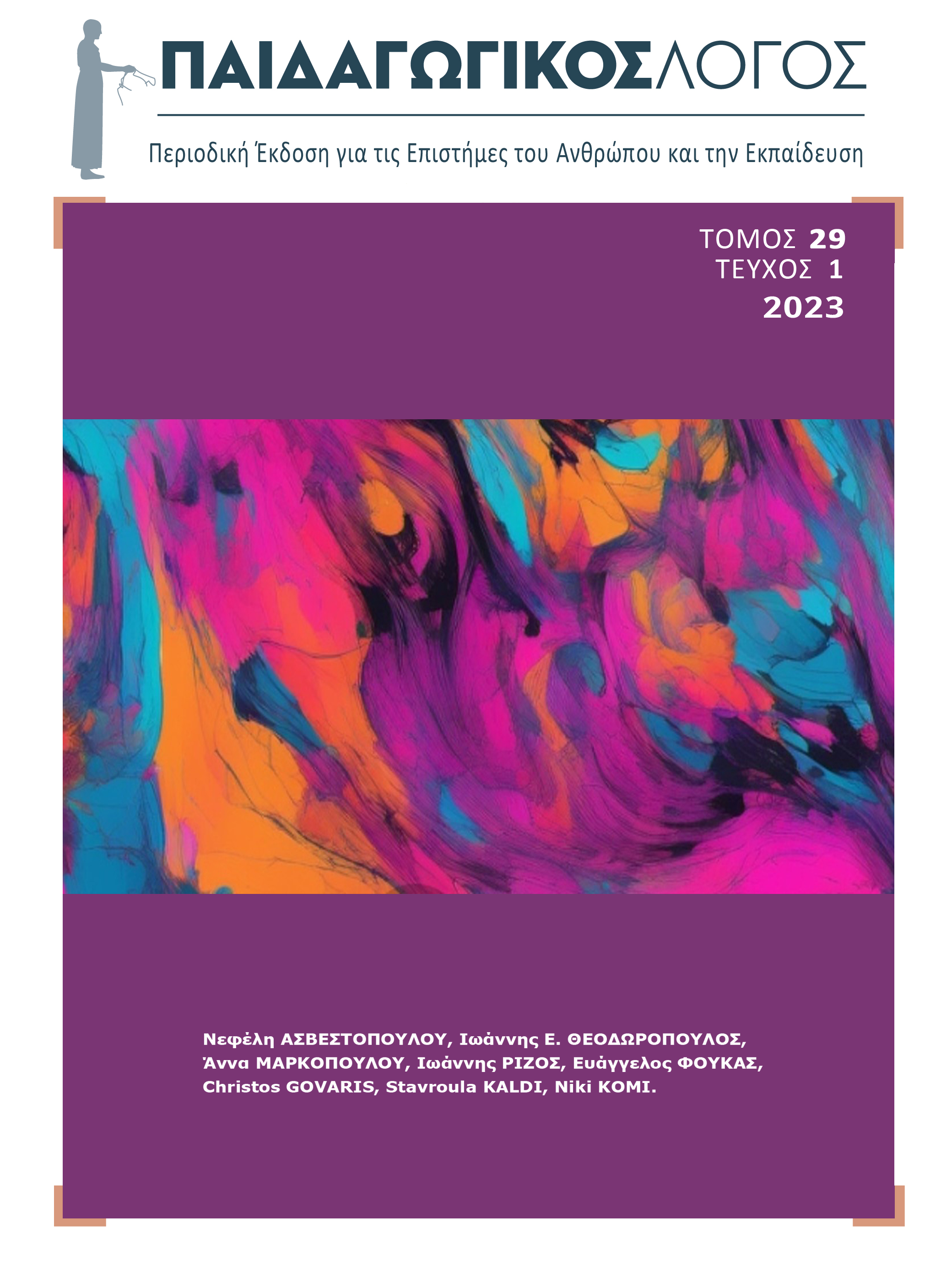Διδάσκοντας Μαθηματικά σε παιδιά με Ειδικές Εκπαιδευτικές Ανάγκες στο πλαίσιο της Συμπεριληπτικής Εκπαίδευσης

Περίληψη
Η επιλογή των κατάλληλων διδακτικών εργαλείων και ο τρόπος χρήσης τους στη διδασκαλία των Μαθηματικών στο νέο συμπεριληπτικό σχολείο αποτελεί ένα κρίσιμο ζήτημα για τη σύγχρονη Μαθηματική Εκπαίδευση. Στο άρθρο αυτό παρουσιάζουμε δύο συμπεριληπτικές διδακτικές μεθόδους που αναπτύξαμε κατά το σχολικό έτος 2022-2023 σε δύο διαφορετικά σχολικά περιβάλλοντα προκειμένου να εισαγάγουμε μαθηματικές ενότητες σε μαθητές και μαθήτριες Γυμνασίου με Ειδικές Εκπαιδευτικές Ανάγκες. Τα αποτελέσματα της έρευνας έδειξαν ότι η αξιοποίηση ενός νέου οπτικού βοηθήματος στη Γεωμετρία, καθώς και χειραπτικού υλικού στην Άλγεβρα βοήθησαν τα παιδιά να κάνουν σημαντικά βήματα προς το ξεπέρασμα του σχολικού άγχους που τα διακατείχε, να εμπλακούν ενεργά στην εκπαιδευτική διαδικασία και να πετύχουν σε ικανοποιητικό βαθμό τους μαθησιακούς στόχους. Στο τέλος του άρθρου συζητάμε ορισμένες διδακτικές προεκτάσεις αλλά και πιθανούς περιορισμούς της έρευνας.
Λεπτομέρειες άρθρου
- Πώς να δημιουργήσετε Αναφορές
-
Ρίζος Ι., & Φούκας Ε. (2024). Διδάσκοντας Μαθηματικά σε παιδιά με Ειδικές Εκπαιδευτικές Ανάγκες στο πλαίσιο της Συμπεριληπτικής Εκπαίδευσης. Παιδαγωγικός Λόγος, 29(1), 11–32. https://doi.org/10.12681/plogos.35142
- Ενότητα
- Articles

Αυτή η εργασία είναι αδειοδοτημένη υπό το CC Αναφορά Δημιουργού – Μη Εμπορική Χρήση – Όχι Παράγωγα Έργα 4.0 4.0.
Οι Συγγραφείς που δημοσιεύουν εργασίες τους σε αυτό το περιοδικό συμφωνούν στους παρακάτω όρους:
- Οι Συγγραφείς διατηρούν τα Πνευματικά Δικαιώματα και χορηγούν στο περιοδικό το δικαίωμα της πρώτης δημοσίευσης, ενώ ταυτόχρονα τα πνευματικά δικαιώματα της εργασίας προστατεύονται σύμφωνα με την χρήση άδειας που υιοθετεί ο «Παιδαγωγικός Λόγος - Περιοδική Έκδοση για τις Επιστήμες του Ανθρώπου και την Εκπαίδευση» : Αναφορά Δημιουργού – Μη Εμπορική Χρήση – Όχι Παράγωγα Έργα 4.0 (CC BY-NC-ND). Αυτή η άδεια επιτρέπει στους άλλους να έχουν πρόσβαση στο έργο και να το μοιράζονται με άλλους, εφόσον κάνουν αναφορά σε αυτό, ωστόσο δεν μπορούν να το αλλάξουν με κανένα τρόπο ούτε να το χρησιμοποιούν για εμπορική χρήση.
- Οι συγγραφείς μπορούν να συνάπτουν ξεχωριστές και πρόσθετες συμβάσεις και συμφωνίες για τη μη αποκλειστική διανομή της εργασίας, όπως δημοσιεύτηκε στο περιοδικό αυτό (π.χ. κατάθεση σε ένα ακαδημαϊκό καταθετήριο ή δημοσίευση σε ένα βιβλίο), με την προϋπόθεση της αναγνώρισης και την αναφοράς της πρώτης δημοσίευσης σε αυτό το περιοδικό.
- Το περιοδικό επιτρέπει και ενθαρρύνει τους συγγραφείς να καταθέτουν τις εργασίες τους μέσω διαδικτύου (π.χ. σε ένα ακαδημαϊκό καταθετήριο ή στους προσωπικές τους ιστοσελίδες) πριν και μετά από τις διαδικασίες της δημοσίευσης, καθώς αυτό μπορεί να οδηγήσει σε παραγωγική ανταλλαγή ιδεών και σκέψεων, καθώς επίσης και σε γρηγορότερη και μεγαλύτερη χρήση και ευρετηρίαση της δημοσιευμένης εργασίας


